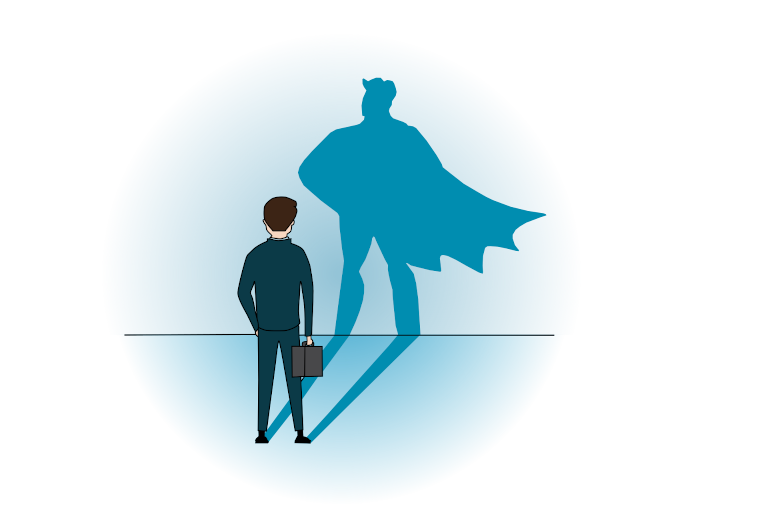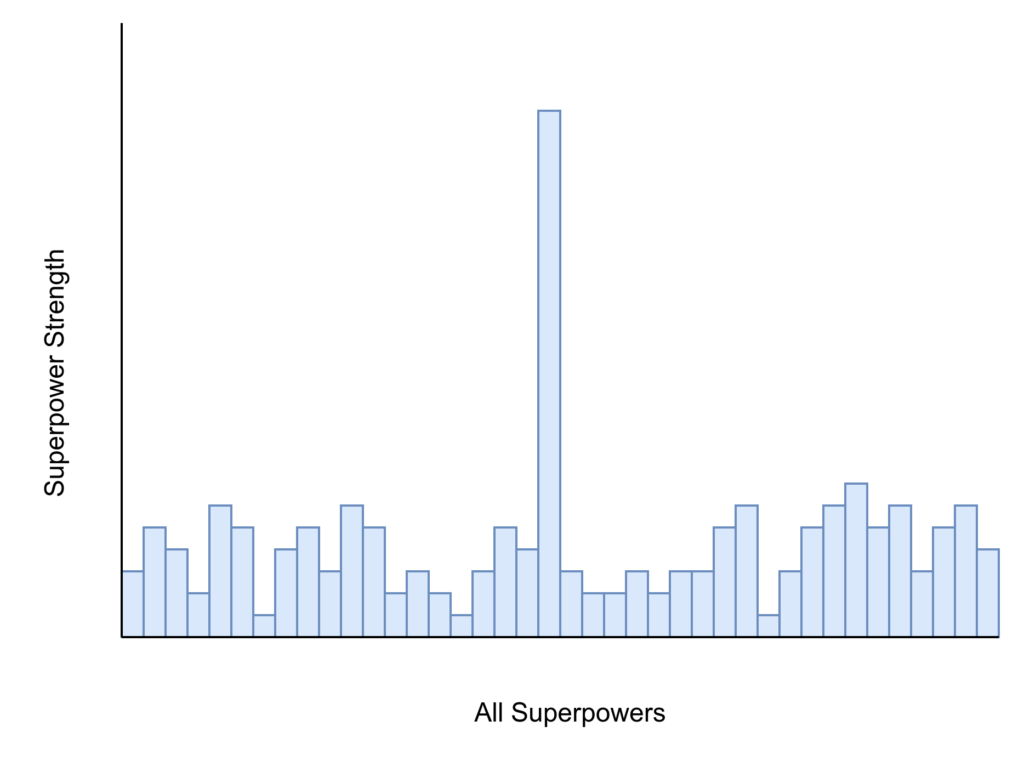“Power doesn’t corrupt, it reveals.” – Robert Caro
"What's your superpower?" is a common ice breaker. I keep a few handy for such occasions.
I have the power to cause useless things to spring into existence just by saying them out loud. Example: Several years ago I quipped, “What I could really use is a Bluetooth enabled toaster,” as a way to accent how ridiculous and insidious technology is becoming. My nephew shot back a link to a Bluetooth enabled toaster that will toast today’s weather onto a slice a bread. Bam! It exists.
This, of course, is a useless superpower.
I also have the power to find landmines in any corporate political landscape with surprisingly little effort. Too many examples here to choose from. Many of the "powerful questions" in my arsenal were discovered by innocently stepping on these types of landmines. Not much that's super about this. Or powerful. Depends on the people in the room.
I suppose I could conjure up something that conforms to the exercise and brings a slow melt to the ice. "My superpower is the ability to REALLY READ a room!", the "i's" dotted with little smiley faces. It'd be a lie, but it sounds good.
This is a perfectly fine ice breaker exercise. It can be fun. But it seems to have evolved into a thing to be considered as part of one's resume. As you might guess, there are plenty of surveys and profiles that claim to help you find your superpower. An article in Forbes (just to pick one from a zillion examples) invites the reader to self-select three superpowers from a list.1 I wasn't able to select three. I wanted to select all of them. But if everything is a superpower, nothing is a superpower. Selecting just one is also problematic. "Captain Observant" strikes me as more pejorative and less save-the-day-guy.
Indeed.com has some helpful tips for tackling the "What's your superpower?" question during interviews.2 X-ray vision, mind reading, time travel, and shape-shifting are among the list of suggested superpowers. It's revealing that "interviewing for a job" isn't among the listed superpowers. A job candidate hoping to work for me doesn't have much of a chance if they claim these abilities. In my industry, it's important to hire adults and not big children who still derive their professional development from cartoon shows.
"Superpowers" are a confusing way to frame what used to be referred to as "competencies" or basic attributes of good character. I'm not on board with this way of thinking about individual development - personal or professional. It carries several assumptions that in my experience are unhelpful and career limiting. They illuminate a path that postpones development as a person.
For starters, labeling some character attribute or skill a superpower implies it's exclusively good. Super is better. Super is superior. Super is useful. Super is desirable. But a superpower welded without skill or competence or with bad intent is no superpower, it's a super problem.
The way I hear many people talk about their "superpowers" is reflected in Figure 1.
What they have is either a self-selected power by which they want others to know them or have demonstrated this power as a standout from other qualities. Ah, but since it's a superpower, developing the other attributes isn't necessary as long as the work they're being asked to do only relies on that one superpower. When exercised in the workplace, it's quite apparent that what their wielding isn't a superpower, but a hammer. Suddenly, all they see is a world filled with nails.
A colleague I worked with at a consulting firm was lamenting the empathy craze that was in vogue at the time. There was a ridiculous competition spanning all layers of the organization for who could out-empathy everyone else. A competition that devolved, laughably and tragically, into accusing perceived competitors as lacking empathy. He referred to this as the "empathy bat." I can well imagine a kindness bat, a loyalty bat, a creative bat, etc. The assumption here is that one superpower is enough and the world should be grateful when we bring ours to the workplace.
Rolled into the idea of superpowers is also the assumption that the superpower is fully developed. It's valuable all the time and everywhere. How can it be otherwise? If a superpower can be improved, then it really wasn't a superpower. Can't have that. It's a superpower and all the other attributes are average or perhaps a little above (according to self-assessments on the matter.) Having a superpower becomes both an imperative and an excuse to stop improving. Unfortunately, the way it looks like in the working world, the superpower is often the average attribute and all the other qualities are underdeveloped. Declaring a skill or character attribute a superpower doesn't make it so any more than declaring one's self Emperor of the Moon grants you access to the realm.
There is an unhelpful odor of arrogance that lingers around claims of superpowers, too. It presuppose your empathy or loyalty or thoughtfulness or creativity is special, superior to everyone else's. When I think of the truly powerful and effective people I've met, humility has been a foundation to their success. None of them have claimed a superpower and all of them have a very clear sense that there is so much more that they don't know than what they do know, so much more about themselves that they can improve, and so many more people who are better then themselves in areas where they strive to improve. Nonetheless, I have every confidence that somewhere someone with a sizable blind spot bias and no sense of irony is claiming humility as their superpower.
"Where will an emphasis on superpowers lead to?", I sometimes wonder. Will there be a time when only people who've paid for training that pumps out certificates in the right kind of empathy are allowed to arbitrate questions of who's being empathetic and who isn't? A time when only licensed creatives are allowed in the room where new ideas are bouncing off the walls? A time where oaths of loyalty (a superpower identified by Forbes), after training to ensure the right kind of loyalty, supersede common sense and ethical judgement born from the wider context? All this is probably already happening. How do I know? Well, because I've thought of these things and thinking useless things into existence is MY superpower. I have a framed certificate attesting to this fact hanging right above my bluetooth enabled toaster.
Image by shahbazshah91 from Pixabay
“Discover Your Superpower At Work” - https://www.forbes.com/sites/dedehenley/2021/03/07/discover-your-superpower-at-work/?sh=7a14d6e87213
“Interview Question: What Is Your Superpower?” - https://indeed.com/career-advice/interviewing/what-is-your-superpower-answers






This reminds me of the concept of "Strengths". It states that we should focus on them and not on our "weaknesses". But it certainly states that we must develop them. Our strengths is where we can have our greatest growth. But it cannot be taken for granted that the strengths alone will warrant ourselves success, we most build and improve above those strengths. I will wonder about my superpower though. Nice post.